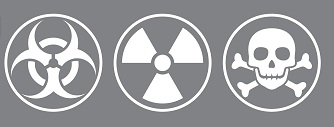State, local, territorial and tribal (SLTT) officials will have a new tool at their disposal as they prepare Threat and Hazard Identification and Risk Assessment (THIRA) reports, thanks in part to a recent study by the National Consortium for the Study of Terrorism and Responses to Terrorism (START).
Funded through the Domestic Nuclear Detection Office (DNDO), START’s Unconventional Weapons and Technology team conducted a comprehensive study examining the trends of radiological/nuclear (RN) risk inclusion (as well as non-inclusion) in the THIRA reports submitted to the Department of Homeland Security by states, territories, tribes, and the Urban Area Security Initiative (UASI) jurisdictions. The goal of the study was to provide DNDO with recommendations on how to encourage state, local, territorial, and tribal officials to include radiological/nuclear (RN) risks in their THIRA to the maximum extent possible.
The START study recommended that DNDO produce RN risk relevant guidance for THIRA either as a part of the larger FEMA guidance or separately as an addendum to the overall FEMA guidance.
DNDO is implementing that recommendation and working with the Center for Naval Analyses to develop the THIRA technical assistance. The aim is to provide state, local, territorial and tribal officials with reference material and guidance so that they can assess RN threats and identify needed capabilities to include in their THIRA reports to support strategic planning and federal preparedness grant eligibility.
